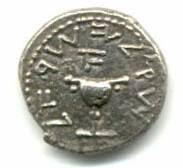Attorney Vogts has represented multiple dealers and manufacturers against claims for selling firearms or ammunition that were then used in a crime.
Suing of manufacturers came out of products liability and gun control attempts to sue the manufacturers to death by legal costs and anti-gun judges. He stated the Protection Lawful Commerce In Arms Act (PLCAA) passed in 2005 has provided broad immunity for manufacturers and sellers when criminals acquire them for unlawful purposes. This was done to prevent lawsuits and gun control by lawsuit by going after manufacturers for acts of criminals. Lawfully manufactured products that function as they were designed to function are not defective regardless of what the Plaintiffs including municipalities might say. But some courts are acting in ways to prevent the immunity granted by the law.
There are some exceptions to the immunity in PLCAA and are being used by Plaintiffs to attempt to sue manufacturers. Exceptions include
1. transfers made with knowledge that it would be used in a crime,
2. A Seller who acts in negligent entrustment or negligence per se against a dealer but the definition does not include a manufacturer.
3. No immunity for knowingly violating a federal or state statute applicable to the sale or maketing of firearms
4. an action for breach of contract or warranty
5. Defective design or manufacture but cannot be done if it was done as part of a volitional act that constituted a criminal offense.
6. No immunity for GCA or NFA act violations.
The 5th exception is important as causation is a threshold issue that allows for a summary judgment motion on such a claim. The exception to the exception is shown when there is a criminal or unauthorized use of the firearm. The Courts can dismiss cases when evidence that there was a volitional criminal act linked to the discharge of the firearm.
The third exception is another avenue where Courts are trying to see if it can be used as an exception to the immunity under PLCAA. Under Ileto v GLock the Ourt held the statutes that were applicable only to those statutes addressed to firearms.
City of New York v Beretta Court looked at whether the general nuisance statute would fit the exception but court rejected it and court then held applicable means statutes that clearly were meant to regulate the firearms industry and statutes of general applicability but the n expanded the predicate statute to go beyond those that only regulate firearms and added those that do not expressly regulate firearms but interestingly added those statutes that courts have applied to the sale of firearms.
He stated the new approach being sought by antis is a negligent entrustment theory and trying to widen it to encompass ordinary negligence.
In Philips v Lucky Gunner, Plaintiff claimed seller should have investigated purchaser before selling and court rightly held that is not part of duty of a seller and ultimate use of a chattel is outside of a seller's control. Otherwise would create limitless liability so the reasonable cause standard helps to protect the seller of a lawful good. Anti-gunners keep trying to have ordinary negligence standard applied as an exception to the PLCAA to attack reasonableness of selling firearms and ammunition at all. An ordinary care standard should not be part of a negligent entrustment case.
A very useful presentation on the subject and current direction where anti-gunners have been trying to twist the law to their ends.

No comments:
Post a Comment